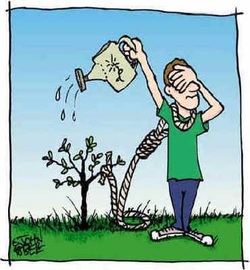 I love having lunch with Mary Ellen. We begin with cheese, crackers, veggies and dip while we kibitz about our lives. Mary Ellen was on the search committee that called me to the church. She is a retired English teach from the same high school that I attended. (I'm so grateful that I never had her as a teacher; I was a serious underachiever in my youth.) She sports a stylish short, platinum blonde haircut and she wears sandals well before Easter and well into the fall. She's been an elder for most of my time as a pastor, re-vamping the Outreach Team and working toward more encounters with hurting, broken people in the world. I'm deeply grateful for her skill set, her honesty, her heart and her ministry. After the cheese and crackers, she whips up her usual Caesar salad with shrimp. I hardly ever eat fish because Pete is allergic. She knows this and that's why she always makes me shrimp. She says a prayer for the meal, giving thanks for friendship and for lengthy lunches together. Amen. Mary Ellen knows loss. She is acquainted with sadness. I would even call her an expert on grief. She has buried three husbands and two best friends. She lost her mother to Alzheimer’s. She has also quilted together an incredible family from the broken pieces of three families. She loves them; and they love her. She is grandma in her own unique way while always honoring the other grandmothers involved. When Mary Ellen cries, her tears come in every color of grief. I have learned to stop dead in my tracks when she begins to cry. Her tears have shown me colors of the rainbow I did not know existed. One of her best friends that she watched die was also a member of my congregation, Jean. Jean was diagnosed with ALS. While Jean suffered, I often found myself at Mary Ellen's lunch table sharing wine and sadness. “Mary Ellen, how are you doing with Jean?” She gathers tears in her eyes, finds a tissue and says, “I don't know why I bother with mascara anymore.” After a pause and bite of shrimp, she tries to start again, “It's hard, it's really hard. She's suffered already with the breast cancer.” Sniffing, she finds her forceful voice to say, “And she fought hard, she won and look at this now. I can't bear to see her suffer like this.” I finish chewing and say, “How can I help you through this?” This afternoon, she began talking about her mother and the awful disease of Alzheimer's. “I thought it was the worst, until this happened to Jean. This must be the worst diagnosis.” She continues with, “I don't ever want to go through this. And I won't. I don't think I've told you this yet but I'm going to take my life if I ever get Alzheimer's disease.” Looking up from my salad I say, “I'm sorry; what?” “I might as well tell you now, Jean and I have spoken about suicide at length. We've even purchased this book. I will lend it to you when I finish. It's all about how to kill yourself. And did you know that none of the options are ever really secure. The author suggests that you always put a bag over your head just in case your first choice doesn't work.” I take a deep breath, put a smile on my face, pour another glass of wine and say, “Stop, just for a second.” She laughs with her wonderful chuckle, shaking her head at this youngster pastor who she has grown to love and need. “Start over. Jean wants to kill herself?” “Well, we've talked about it but I don't think she'll be able to do it. She's always been such a good, Christian girl. But we've been looking into which pills she is taking and how she could collect some on the side. The thing that makes me most mad is that there isn't assisted suicide in NJ. I told Jean, 'I love you but I'm not going to jail. You're going to have to do this on your own. I'll be there with you but I can't help you do it.” “What does Jean say to that? I ask. “She agrees and also laments that there is no assisted suicide in NJ. If there was, this would not be an issue. She would be able to talk to her physician about her wishes. The problem with ALS is that by the time it's too much for her to handle she won't be able to do it herself. She'll be too weak or she'll have lost the use of her arms or even her voice.” We pause and look at one another. Who gets to have these conversations in our culture? Clearly doctors don't. Families may. And if they're lucky – pastors get to have these conversations. My training would tell me that thoughts of suicide are signs of disease, severe signs of an unhealthy human being and that this conversation needs to be shared with a professional. After a second consideration, I realize that I am the professional with whom it is being shared. Don't get me wrong, I don't have delusions of grandeur and I “refer, refer, refer” all the time. This conversation was meant for her pastor; I am her pastor. So in all of my inexperience, I respond with these words, “well, I don't think that any of this should happen alone. I don't think anyone should die alone and I certainly don't think any of us should go to jail for helping someone die.” I don't know exactly what that's going to mean practically for Jean or for you. But when the day comes, if the day comes, I want to be there. I think your pastor should be there.” Jean wasn't able to take pills to end her life. Instead, she entered hospice care where a nurse administered doses of morphine. Mary Ellen laid beside her on the hospital bed. Along with others, I sat beside them. For now, the book about how to kill yourself is on a shelf.
1 Comment
 My chaplaincy was spent at a “trauma 1” center. I watched summer nights yield knife fights and gunfire. I caught a burly, tatoo'ed man in my arms as his wife was wheeled into the ER. She lost control of her motorcycle while trying to avoid a truck. I sat with a widow whose husband fell off a ladder affixing Christmas lights. The definition of trauma is any situation or event that distresses or disrupts. In other words, if we are traveling one way and something stops us in our tracks – that's trauma. I hit someone; I stop them from whatever they were doing – that's trauma. Trauma doesn't necessarily have to be a damaging physical event but usually our physical bodies are involved. But the trauma that continues to inform much of my understanding of our ability to control life happened when two teenagers made a suicide pact. My beeper went off – Code 40, Trauma, 5 minutes by ambulance. One boy, dead on arrival. I never saw him or his family. But his friends were surrounded by dozens of hands, each in control of one portion of this young man's treatment. The chaplain reports to a trauma call. I typically stood right outside the room and the door was often left open. I held the space as sacred – I whispered prayers. I watched; I breathed. In a frenzy of doing everything within our power, I represented what is beyond our power.  I wasn't alone outside the room. Other physicians waited their turn, patient advocates looked for contact information while security guards cataloged the patient's belongings. The guard found a note, began reading it and looked up – his eyes searched for me. “Are you the chaplain?” “mh hm,” shaking my head. He handed me the paper. I began to read a scratched out note that laid clear intentions of a suicide pact. I took a deep breath,looked up from the note to find four physicians standing over my shoulders reading the note. I touched them lightly on the shoulder, the arm, “Hey, you ok?” At first they didn't say anything. They didn't want to look at me. As the chaplain, I represent all of the things that are out of their control. Again doctors and nurses are trained to do everything in their power to heal. My presence reminds them that not everything is within our power. And when trauma happens, we find so little within our control. I tried to get their attention again, “Seriously, everyone, how are we doing?” One finally spoke, “It pisses me off.” Another spoke up, “Stupid kid, he writes the damn note and he survives while his friend dies. What's he gonna do now?” “He wanted to die. Look at all that's going on to save him right now.” Our eyes glanced up to see all of those hands working diligently in the trauma room. Before you think “doctor's aren't supposed to talk like that,” I want to make sure I say I learned about courage and diligence from hospital physicians. I learned to do the job in front of me, with all that I've got until my shift is up. Then I learned to trust your colleagues to take over for you. I learned to take small breaks in between crisis. After talking through frustration and making sure they were heard, I folded the note and handed it back to the officer on duty. With a sad smile, I asked the patient advocate to call me when the young man's parents arrive. I found a seat in the hotel lobby where there is a water fountain and a gas fireplace. I caught my breath and tried to imagine this family's next 48 hours. I whispered prayers and cultivated a spirit of peace and acceptance, preparing myself to look into the eyes of his parents. A couple hours later, after the psychologists and social workers had seen the parents, I knocked on the door, both parents stood beside the bed, a physician checking his vitals. I'm Beth, I was the chaplain on call when your son arrived. “Did you see the note? I nodded. “Did you?” I asked. “Yes.” And after a pause, she said, “We don't understand.” “I imagine you wouldn't.” Tears were dripping on her cheek forming a continual streak her right cheek while her left eye was being blotted with a tissue. After a period of silence together, holding the sacredness of this space,I touched her shoulder and said, “Be kind to yourself.” He was to be moved to a facility soon. I told her that she would remain in my prayers – for strength and wisdom and that she would extend kindness to herself. I packed my stuff and prepared to leave my shift, passing on information to the next chaplain on call. I remember the drive home. It was not quite gray. The sun shone through the wispy clouds here and there. There was a slight breeze. I watched as the world began to wake up – a woman walking on the sidewalk, a guy putting out a rack of shirts at a storefront. When I arrived home, I made coffee and found a place on the couch to stare out the window for awhile. What just happened? A person tried to take his own life; a person was unsuccessful in trying to take his own life. Unlike the majority of the people who enter the emergency room by ambulance, this one didn't want to be saved. He had planned for death. He had tried to take control and failed. It would take me another 3 months to realize that my struggle with this specific instance was about “control” and our lack of it. As a chaplain and as a pastor, I have developed a relationship with the fragility of life, the randomness of illness, the frightening reality of the world around us. But those things happen to us and we have no control. This young man had tried to take control – and even that was out of his control. |
What is this blog about?These are some of the reflections that I am fashioning into a memoir about coming to peace with my husband's diagnosis of multiple sclerosis.
|



